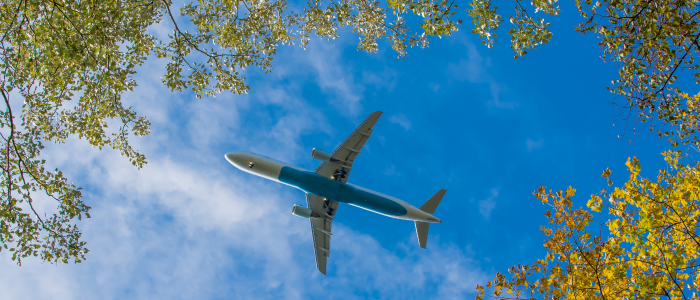Burundi – To offset the CO2 emissions from our air travel, we have created our own compensation fund. With the money from this fund, our Burundi partner can plant trees in the capital Bujumbura.
At Join For Water, we want to work in a sustainable way, not only in our programs, but also in the office. Therefore, every year we calculate the CO2 emissions of all our offices. Emissions from our air travel make up the largest part of this. However, air travel is necessary for our operations to run smoothly, making it unlikely for us to be able to achieve zero emissions. The Executive Committee therefore decided to offset the CO2 emissions from our air travel.
Based on the number of miles per plane, we calculate the emissions and also how much it would cost to offset them. For 2022, this amounts to 3,855 euros.
Each country office could submit a mini-project for this amount that contributes to reducing our emissions or capturing CO2. One important aspect was the visibility of the project so that it also has an awareness-raising effect.
Solar energy
Mali’s proposal included the installation of solar lighting at the Join For Water office and in the partners’ offices. Our Bamako office has a generator to provide electricity during power outages. Solar lighting can be especially useful at night because the lights are kept on for safety reasons. Working with solar energy would reduce the need for diesel and minimise CO2 emissions.
The Join For Water DR Congo team was thinking along the same lines. In Kisangani, where the office is located, power outages are quite frequent. The generator has to run every day, which not only consumes a lot of diesel, at a high cost, but also continuously creates noise and strong odours. This is not a healthy situation for our colleagues! The team suggested purchasing a solar-powered system to reduce CO2 emissions, and also to improve working conditions.
This year, the prize goes to Burundi. Our partner ASREEBU will plant 2,000 indigenous tree species in the capital Bujumbura. At that site, there will also be an information center where visitors will be able to learn more about biodiversity. The trees will provide shade and cooling in the city center. They will also provide fruits and ingredients for traditional medicines uses while at the same time, retaining CO2. The project will be a model for how local actions can contribute to global goals.
To be continued.

